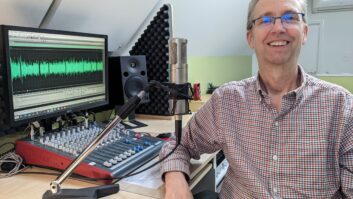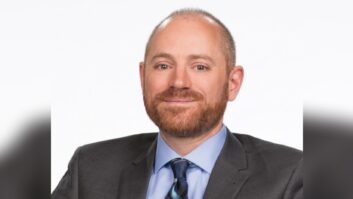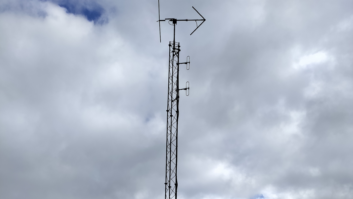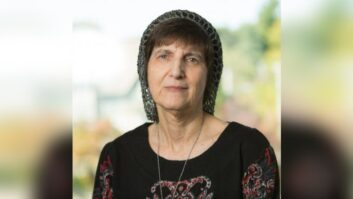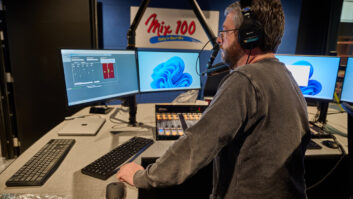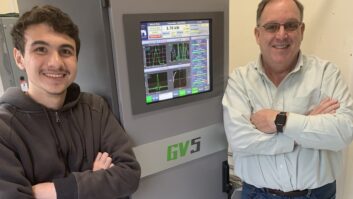Don Schellhardt is a longtime advocate of low-power broadcasting. He has been a government relations attorney since 1975.
Nick Leggett may be best known, in certain circles, as a pioneering activist for Low-Power FM community radio stations. I know how hard Nick worked on this issue because I joined him in many — not all, but many — of his labors for LPFM. Still, there was much, more to the man than LPFM alone.
I’ll begin with N3NL: Nick Leggett’s call sign in the Amateur Radio Service. I’m not sure, of course, but I suspect Nick would want me to mention, very early in this article, that he was a ham since childhood.
He might want me to add that he chose his own call sign. It won’t surprise you that “NL” stands for “Nick Leggett,” but you might not guess that “N3” is ham code for the United States. From the boyhood days when he earned his first ham license, Nick saw his own fate as aligned somehow with the fate of the United States.
Nick was no blind nationalist. He saw America as worthy of his loyalty so long as it tried to follow its own highest ideals — tried to shine as a beacon of liberty for the world. He did not second the famous toast of Commodore Stephen Decatur: “My country, in her dealings with other countries, may she always be in the right — but my country, right or wrong!” Nick preferred the response of reformer Carl Schurz: “My country, right or wrong. When right, to be kept right! When wrong, to be set right!”

Nick and Judith at one of their favorite activities.
Nick saw the wise development and use of technology as one major way to move his country forward, as a force for good in the world.
Nick’s passion for ham radio, and his passion for LPFM, were expressions of a lifelong love affair with technology. I think he would want you to know that he was an intern with NASA, an analyst for international research and technology and a computer specialist for GTE and Alcatel. I think he would want you to know that he held every noncommercial radio license offered by the FCC. He also held every noncommercial pilot’s license offered by the FAA, including balloonist and glider licenses. Finally, I will add that he held patents for three inventions, some of them probably ahead of their time but all of them interesting.
Nick also co-authored some award-winning scientific papers with his wife, Judith Fielder Leggett. One paper speculated that lunar soil — sheltered from excessive sunlight beneath the moon’s surface and properly watered, perhaps with subterranean lunar ice — might be able to grow crops for a human colony. Judith, who holds an M.S. in Agriculture, was particularly helpful in this analysis. Then, decades later, with or without the benefit of the Leggett/Leggett paper, NASA began experiments with growing crops on the moon.
Speaking of Nick’s wife, she was literally the girl next door. Her parents owned a home on Martha’s Vineyard, in Massachusetts, adjoining a home owned by Nick’s parents. Periodically, Nick, joined at times by his sister Ann Leggett, would visit his parents while Judith was visiting hers. The two frequently crossed paths and, in time, nature took its course.
As for my own role in Nick’s life, it began in 1967 — 50 years ago — when we were both students, majoring in government, at Wesleyan University in Middletown, Conn., I joined a fraternity, the Kappa Alpha Society (often confused with the Southern-oriented Kappa Alpha Order) and Nick became my sponsor. The friendship lasted through the years, deepening after we both migrated to Washington for career reasons. We became partners in activism in 1986, when we petitioned the FCC for action to shield civilian electronics equipment against an electromagnetic pulse. In time, we moved on to LPFM, which became our “claim to fame” in the radio world.
We had some disappointments with LPFM: notably, the FCC’s refusal to license 10 watt stations that could “fit” into crowded urban spectrum, and the commission’s disinterest in allowing “satellators” to air locally originated programming under certain conditions.
Overall, however, we were pleased by what we and other LPFM advocates had been able to accomplish.
I am confident that Nick’s life will leave more echoes in the world than LPFM alone. Still, if LPFM is remembered as Nick’s principal legacy, it is a fitting example of what he valued in life. LPFM is an expansion of free speech, and also localism, championed by a man who loved his country — and loved diversity, too.






